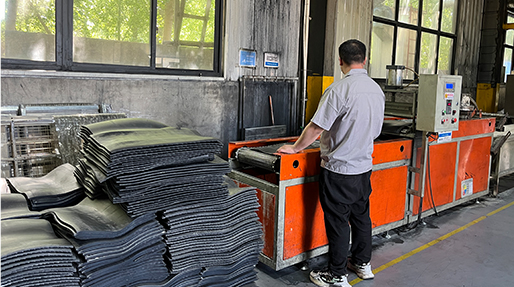Understanding Diesel Fuel Tubing Systems for Efficient Fuel Delivery and Performance Optimization
Nov . 06, 2024 07:17 Back to list
Understanding Diesel Fuel Tubing Systems for Efficient Fuel Delivery and Performance Optimization
Understanding Diesel Fuel Tubing A Critical Component for Efficient Engine Operation
In the realm of diesel engines, the efficiency and reliability of fuel delivery systems are paramount for optimal performance. Among the many components that facilitate this process, diesel fuel tubing plays a crucial role. This specialized tubing is not merely a conduit for fuel; it is intricately designed to withstand the demanding conditions typical of diesel engines.
The Importance of Diesel Fuel Tubing
Diesel fuel tubing is essential for transporting fuel from the tank to the engine's fuel injection system. The design and material of the tubing are critical, as they must endure high pressures, resist corrosion, and prevent leakage or contamination. The efficiency of a diesel engine largely depends on how well the fuel can be delivered at the proper rate and in the right condition.
Types of Diesel Fuel Tubing
There are several types of diesel fuel tubing, tailored to different applications and environments. Generally, these can be categorized into two main types rubber fuel hoses and metal fuel lines.
1. Rubber Fuel Hoses These are commonly used in less demanding applications. Designed to be flexible, rubber hoses can accommodate various engine layouts and are easier to install. However, they may have limitations in terms of temperature and pressure resistance. Over time, rubber hoses can degrade due to exposure to heat, chemicals, and ozone, making regular inspections vital.
2. Metal Fuel Lines For more demanding applications, such as heavy-duty trucks or equipment used in extreme conditions, metal fuel lines (often made of steel or aluminum) are preferred. These lines are robust and capable of handling higher pressures without risk of bursting. They also resist punctures, making them ideal for use in rugged environments. While they can be more challenging to install due to their rigidity, their durability and longevity make them a wise investment.
Factors to Consider When Selecting Diesel Fuel Tubing
diesel fuel tubing

When choosing diesel fuel tubing, several key factors must be considered
- Pressure Rating The tubing must be rated for the pressure of the diesel fuel system. Using tubing rated for lower pressures can lead to catastrophic failures, including leaks and potential fire hazards.
- Temperature Resistance Diesel engines generate significant heat. Therefore, the tubing must withstand the high temperatures typical in engine compartments without deteriorating.
- Chemical Resistance Diesel fuel contains various additives, and the tubing material must resist degradation from these chemicals. Choosing the wrong material can result in premature failure.
- Size and Compatibility Proper sizing is critical. Tubing that is too small can restrict fuel flow, while tubing that is too large may not create adequate pressure in the system.
Maintenance of Diesel Fuel Tubing
Regular maintenance ensures the longevity and reliability of diesel fuel tubing. This includes routine inspections for signs of wear, cracks, or leaks. Especially in older vehicles or equipment, it is essential to ensure that the tubing remains in good condition. Replacing worn or damaged tubing promptly can prevent more significant issues, such as engine performance problems or safety hazards.
Conclusion
In summary, diesel fuel tubing is a vital component of any diesel engine. Its role in delivering fuel efficiently and reliably cannot be overstated. By understanding the different types of tubing available and the factors to consider when selecting and maintaining them, operators and mechanics can ensure optimal engine performance and longevity. As diesel technology continues to evolve, the materials and designs of fuel tubing will also advance, improving the efficiency and safety of diesel fuel delivery systems, and ultimately leading to more reliable engine performance. Making informed decisions about diesel fuel tubing can lead to better performance, lower emissions, and increased fuel efficiency, aligning with the growing emphasis on sustainable and responsible machinery operation.
